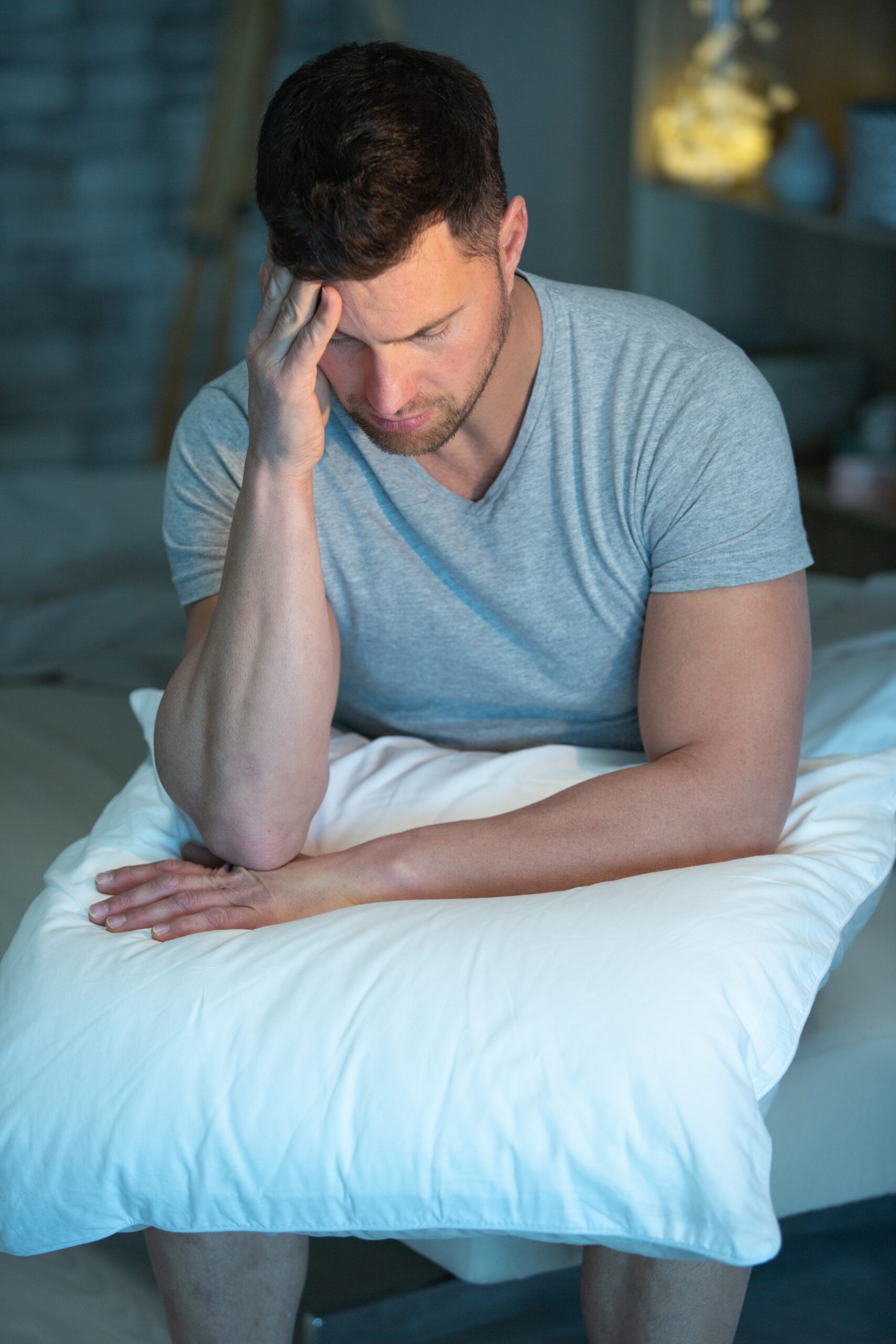Anxiety and insomnia often go hand in hand, creating a frustrating cycle where sleeplessness exacerbates anxiety, and anxiety disrupts sleep. For individuals struggling with anxiety-related insomnia, finding relief requires addressing both the physical and emotional factors that impact rest. Sleep hygiene—the practice of establishing habits that promote restful sleep—offers an effective way to break this cycle and restore balance.
This article explores the connection between anxiety and insomnia, the importance of sleep hygiene, and actionable strategies to improve sleep quality.
How Anxiety Affects Sleep
Anxiety triggers the body’s stress response, activating the sympathetic nervous system and releasing hormones like cortisol and adrenaline. This “fight-or-flight” reaction can interfere with the ability to relax and fall asleep. Common sleep-related symptoms of anxiety include:
- Difficulty falling asleep.
- Frequent nighttime awakenings.
- Restlessness or vivid dreams.
- Waking up feeling unrefreshed.
Chronic insomnia caused by anxiety can lead to physical and mental health consequences, such as fatigue, irritability, and decreased cognitive function. According to the National Institute of Mental Health (NIMH), prolonged sleep deprivation can also worsen anxiety disorders (NIMH – Sleep Disorders).
The Importance of Sleep Hygiene
Sleep hygiene refers to habits and practices that create an environment conducive to quality sleep. Good sleep hygiene helps regulate the body’s internal clock, known as the circadian rhythm, and supports the natural sleep-wake cycle.
For individuals with anxiety, sleep hygiene can serve as both a preventive measure and a treatment strategy, reducing the impact of stress on sleep.
Sleep Hygiene Tips for Anxiety-Related Insomnia
- Establish a Consistent Sleep Schedule
Go to bed and wake up at the same time every day, even on weekends. A regular schedule helps regulate the body’s circadian rhythm, making it easier to fall and stay asleep.
- Create a Relaxing Bedtime Routine
Develop a pre-sleep ritual to signal to your body that it’s time to wind down. Activities like reading, taking a warm bath, or practicing gentle stretches can help reduce tension and prepare your mind for rest.
- Limit Exposure to Blue Light
The blue light emitted by screens (e.g., phones, tablets, and TVs) suppresses melatonin production, a hormone essential for sleep. Avoid screens at least one hour before bedtime or use blue-light-blocking glasses.
- Optimize Your Sleep Environment
Make your bedroom a sanctuary for sleep by:
- Keeping the room dark with blackout curtains.
- Maintaining a cool, comfortable temperature.
- Using a white noise machine or earplugs to block out disruptive sounds.
- Investing in a supportive mattress and pillows.
- Practice Relaxation Techniques
Incorporate calming practices into your bedtime routine to ease anxiety, such as:
- Progressive Muscle Relaxation: Tense and relax each muscle group, starting from your toes and moving upward.
- Mindfulness Meditation: Focus on your breathing or a calming mantra to quiet racing thoughts.
- Visualization: Imagine a peaceful, comforting scene to distract from stress.
- Avoid Stimulants and Heavy Meals Before Bed
Limit caffeine and nicotine intake in the afternoon and evening, as these stimulants can interfere with sleep. Similarly, avoid heavy or spicy meals close to bedtime, as they can cause discomfort and disrupt sleep.
- Reserve Your Bed for Sleep
Use your bed only for sleep and intimacy to strengthen the association between your bed and restful slumber. Avoid working, watching TV, or using your phone in bed.
Addressing Nighttime Anxiety
If anxiety keeps you awake, try the following strategies:
- Journaling: Write down your worries before bed to clear your mind.
- Breathing Exercises: Practice slow, deep breathing to calm your nervous system.
- Distracting Activities: If you can’t sleep after 20 minutes, get up and engage in a quiet activity like reading until you feel drowsy.
When to Seek Professional Help
If sleep hygiene practices don’t improve your insomnia, consider seeking help from a healthcare provider. Cognitive Behavioral Therapy for Insomnia (CBT-I) is an evidence-based treatment that targets the thought patterns and behaviors contributing to sleep difficulties. Medications, such as short-term use of sedatives or anxiety-relief medications, may also be considered under a doctor’s guidance.
The Long-Term Benefits of Quality Sleep
Prioritizing sleep hygiene doesn’t just improve sleep—it also enhances overall well-being. Regular, restful sleep supports:
- Better emotional regulation.
- Improved cognitive performance.
- Stronger immune function.
- Reduced risk of chronic health conditions, such as hypertension and diabetes.
For individuals with anxiety, restorative sleep plays a crucial role in reducing stress and enhancing resilience.
Conclusion
Anxiety-related insomnia can be challenging, but adopting sleep hygiene practices offers a pathway to relief. By creating a supportive sleep environment, establishing consistent routines, and addressing nighttime anxiety, individuals can break the cycle of sleeplessness and stress. Combined with professional care when needed, these strategies empower individuals to reclaim restful nights and brighter days.
With patience and persistence, quality sleep is within reach, paving the way for improved mental health and well-being.


